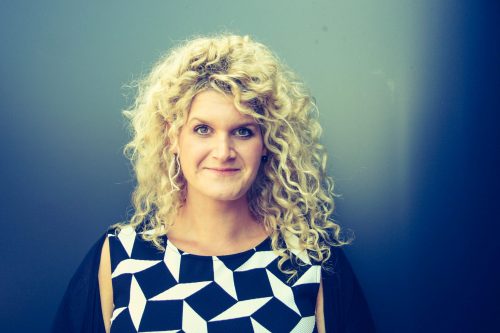Trailblazing tech is impossible without diversity

Diversity blog by Sarah Novotny Head of Digital, Creative and Tech at GC Business Growth Hub
Like all great cities, Manchester has been built on its diversity, from its rich blend of cultures and nationalities, to the new wave of talent that arrives in the city each year, with a fresh intake of students.
In today’s complex, interconnected world, diversity forms the fabric of modern society from gender, race and ethnicity, to issues, around disability, political and religious beliefs and sexual orientation.
And it’s a diversity that needs to be reflected in the workplace, too.
A diverse workforce is no longer just something that’s ‘nice to have,’ a box-ticking exercise that keeps various stakeholders happy; it’s a crucial part of a successful, profitable business that can give a huge competitive advantage, and encourage new ideas and ways of thinking.
Diversity is at the core of a business’s ability to be creative and innovative; put simply, there would be no trailblazing tech without it.
Over the last 18 months I have seen on the ground what a lot of research has been telling us – diversity brings resilience and improves a company’s ability to cope with what’s thrown at it better than a less diverse one. Those businesses that have been championing diversity and inclusion in the workforce are now coming out of the pandemic with a pipeline of innovative new ideas and solutions.
The two age groups hit hardest by the pandemic have been 16-24-year-olds, and those over 50. Within the latter group, a lot of people are pivoting their careers, some through choice, many through necessity. And with so many companies now moving into the digital space, from online meetings to online shopping, more people are looking towards the tech sector for a new career, which gives us a unique opportunity to develop in a much more inclusive way.
We have seen a lot of success first-hand of businesses who have managed to attract diverse tech talent throughout the pandemic. Rosie Anderson from Honeypot Digital, our sector specific recruitment partner, echoes our findings.
“Looking at different talent pools such as career changers, tech returners and candidates who are making the change to digital from other industries, they can quickly take on those middle tier positions, while also bringing diversity of thought to a business,” she says.
“This talent pool can draw on their alternative working experiences, to typically upskill and embed into the lower management of a business faster than a graduate.”
Greater Manchester has many organisations such as Tech Returners and Northern Coders who are helping to bring people from completely different backgrounds into the industry and give them the confidence and the foundations to start new careers.
And then there are Millennials and Generation Z, who are set to push diversity even higher up the agenda. When these young people are searching for a job, inclusion is a priority.
They want to work for an organisation where diversity is a well established part of company culture not something covered by an A4 sheet in their welcome pack.
By 2025, Millennials will make up 75% of the global workforce; they will be the people calling the shots and making the decisions. And they will bring with them a take on diversity that is far different from the traditional view that sees it through the lenses of race and equality.
Their views have been shaped by changing 21 st century societies, with their diverse mix of different experiences and perspectives. They expect the workplace to be an environment that supports and welcomes these different views.
So, as we move forward into a post-pandemic landscape, what can businesses do to embrace these changes? Firstly, it’s important for companies to realise that they aren’t alone. There is a huge amount of expertise, guidance and support to tap into, so they can avoid making common mistakes and take advantage of a real opportunity to build something better.
Digital tech companies can access specialist advice and guidance through the Hub’s Digital, Creative and Tech (DCT) team, where two key initiatives stand out. Creative Scale-Up is a fully-funded programme aimed at the digital and creative sector that focusses on leadership, inclusivity and firing up growth and becoming investment-ready as we emerge from COVID-19. Alongside this, our Creative Accelerator aimed at freelancers and smaller businesses – which is currently taking on the last intake for the year – covers four key components, including the leadership and people, business strategy, operations and finance.
Businesses can make other changes, too. At a recent session on diversity and inclusion which I chaired as part of the Creative Leaders Festival, several simple, yet effective, ideas were put forward.
Recruitment is a key area where diversity can be improved, from ‘spreading the net’ when it comes to where and how you look for people, to making sure that job adverts are worded in such a way that they don’t automatically put off a large proportion of potential interviewees.
Assigning budget to diversity and inclusion is another important factor, as it gives senior leaders buy in.
Take a look around your workplace, suggested one speaker, and see who is missing. Ethnic minorities make up 25% of Greater Manchester’s population but how many workforces actually reflect this figure and can honestly say they represent the community where they operate?
But what really came out of the discussion is that diversity shouldn’t be seen as a problem to be solved, but rather as the solution to the problem.
Applications for Creative Scale-Up close on 30 September. For more information, visit the website.








